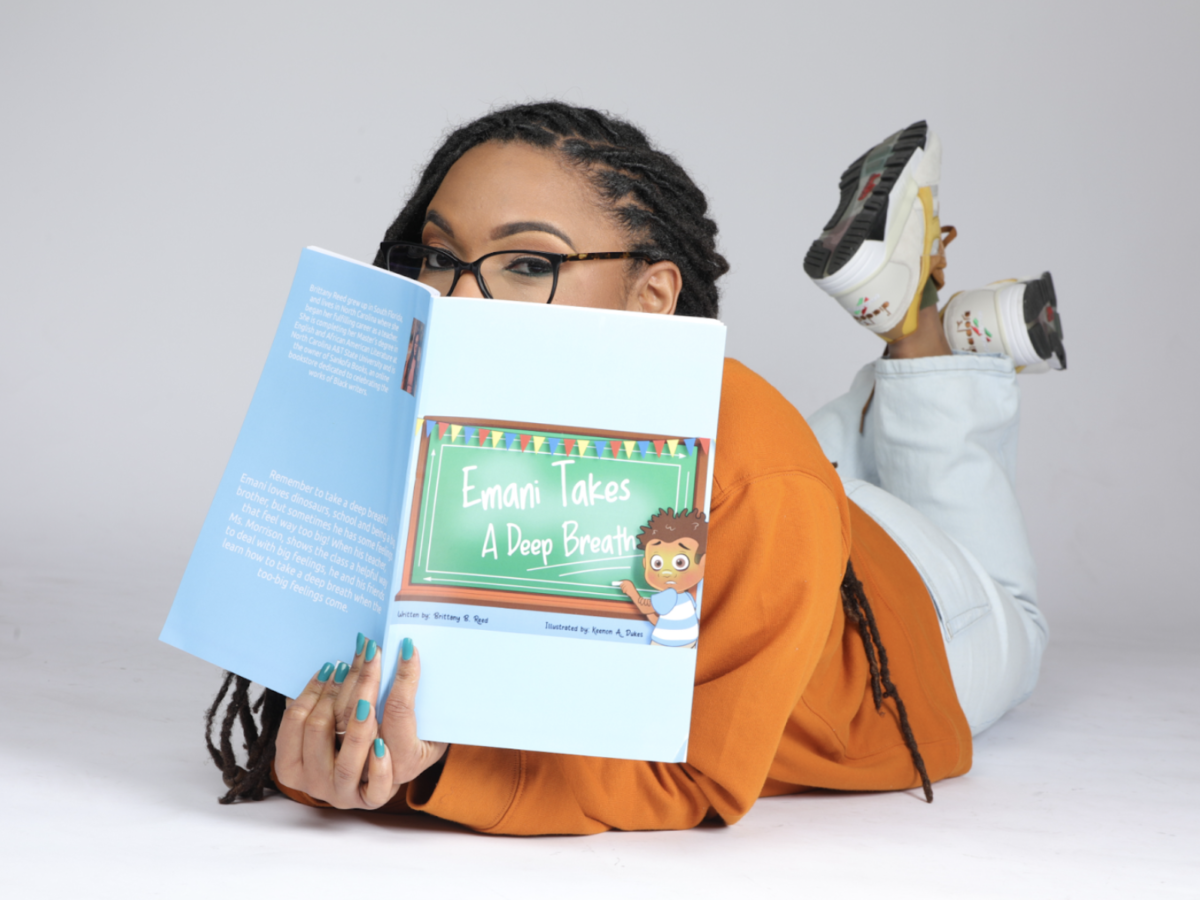
|
|
The following is part of my monthly column, One Day and One Goal: Expanding opportunity in N.C. I invite you to follow along as I share stories from classrooms and explore critical issues facing education in our state. Go here for past columns.
The role Black narratives have played in our classrooms has changed dramatically in the last few years, because the way our country produces Black narratives has also changed. For instance, though readership of Black authors rose nearly 200% in 2020, Black authors still only make up roughly 6% of the industry.
A similar pattern plays out in our classrooms, where Black and other non-white students comprise over half of the population, while only 16% of the teacher workforce identify as Black.
Making the teacher experience sustainable has been on the hearts and minds of nearly everyone connected to the public education system in the last few years. For Bri Reed — educator, creative writer, and small business owner — the answer lies in pursuing all of her passions.
“I think when teachers pursue their passions outside of the classroom,” Bri says, “it fulfills us and feeds us so we can show up full and best serve our students.”
Like cold water in a desert
Bri grew up in South Florida, moving in 2018 to Eastern North Carolina as a member of Teach For America and other AmeriCorps programs. After teaching fourth grade for three years, she began teaching middle school English/language arts, and, in addition to pursuing a master’s degree in English and African American literature, also recently added the publication of a children’s book to her long list of accomplishments.
Writing “Emani Takes a Deep Breath” was an endeavor in guiding young students like her own to navigate complicated emotions as they grow up.
“We often teach children that it’s not okay for them to feel anything negative, instead of helping them navigate how to manage what they feel in a safe and healthy way,” Bri explains. “I hope families see how important and possible it is to create a safe space for children to feel and learn to express what they are feeling, and that teachers see it as well.”
In Bri’s words, “Emani Takes a Deep Breath” “is about a young Black boy who experiences several different kinds of emotions that feel too big for him, and we get to follow him as he learns how to use a tool that helps with ‘too-big’ feelings throughout the book.”
This lesson is a personal one for Bri and her circle of friends.
As someone who has experienced anxiety firsthand, being an educator at a school that centered social emotional learning presented both a personal and professional opportunity for Bri to learn and grow. The curriculum’s tools around breathing proved especially useful. “So much so that I got a ‘breathe’ tattoo!” Bri recounts.
“One of my best friends, Emani’s namesake, has also dealt with anxiety since childhood; in sharing our experiences with one another, it became very important to me to give something I wish we had when we were younger to help us deal with those feelings.”
“Emani Takes a Breath” is a culmination of Bri’s passions: reading, writing, and teaching.
“I’ve always loved to read and write, but when I was younger, I didn’t see any books that had characters who looked like me,” Bri says. “So, when I finally discovered Black authors, it was like coming across cold water in a desert; I couldn’t get enough, and I still can’t.”
When she became a teacher, ensuring that her classroom library reflected their experiences and identities was an act of love both for her past self and her current students.
“I love getting to see my students make personal connections to a text,” Bri says. “When they see and hear stories and experiences that are relevant to them, they get to see and learn about themselves and they get excited about it. When you see yourself represented, you see how important you are and that you are not alone.”
Now, Bri’s book can be added to classroom libraries just like hers. She also spotlights literature of the African diaspora in her online bookstore, Sankofa Books, where her book will be available as well.
Writing Black experience into the classroom
How and why educators honor the history of Black Americans in our classrooms has never been more scrutinized. Yet, Black students remain the second largest demographic within North Carolina schools by a sizable margin. How do we reconcile reality with representation?
We can expand the emotional literacy of all students by introducing more Black narratives through a number of methods, two of which stand out at this juncture in our education system: diversifying our teaching force and diversifying our students’ reading material.
Bri represents a way to do both.
What stands out to me most about Bri is how she finds joy in bringing her whole self to her work in and beyond the classroom. She displays true commitment to her students as well as to her role as storyteller. One fuels the other. And now, the product of her formula for sustaining herself is sure to make an impact that is even more significant, for students and teachers alike.
I hope to see more teachers embracing their role as storytellers.
No, not every teacher will find their voice in a children’s book. Yet, every teacher is an amalgamation of unique experiences with which they lead and empower their students. This is an invaluable way that specifically Black narratives can find their ways into the hands and hearts of our students.
Studies show that students with at least one same-race educator have improved attendance, perform better on standardized tests, and are suspended less frequently. To paraphrase multicultural children’s literature researcher Rudine Sims Bishop, all students need windows and mirrors in the books they read.
When asked what advice she would give to others interested in pursuing their passion while teaching, Bri says, “Do it!”
It reminds me of a famous quote by writer and educator Toni Morrison: “If there’s a book you really want to read, but it hasn’t been written yet, then you must write it.”



